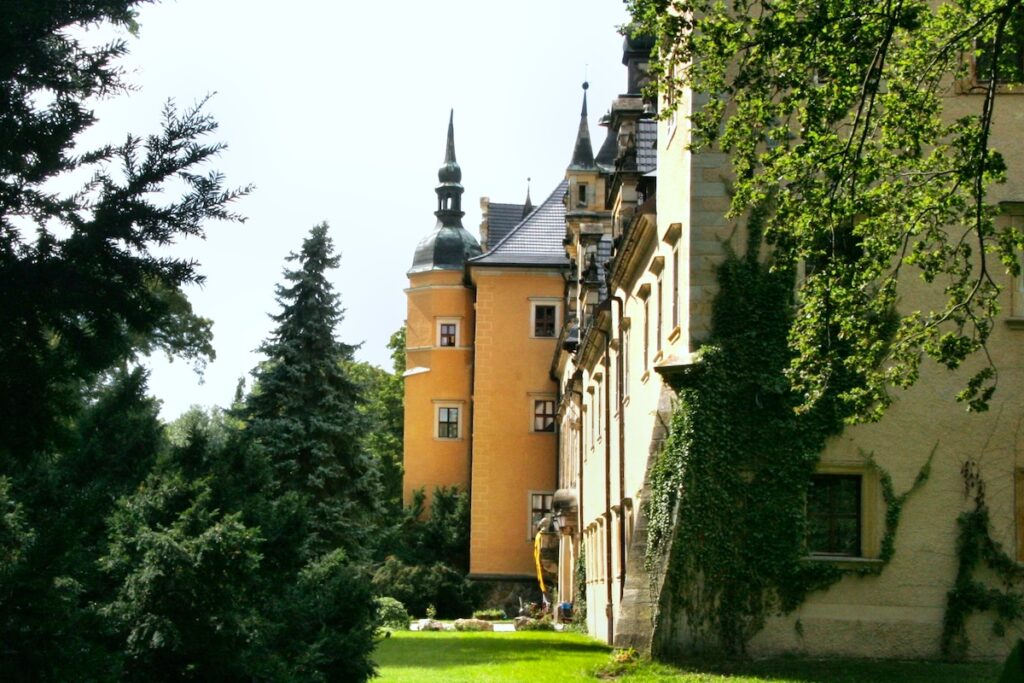The Extraordinary Experience Academy is an immersive five-day event held in a medieval castle in Poland that breaks traditional conference norms through its unique approach to participant engagement and learning. Here’s how this innovative campaign builds meaningful connections.
Director Claus Raasted explains that the campaign is based on two key questions: “If you sit down with a Formula 1 driver, a Hollywood film producer, a professional jazz musician and a surgeon… At a table, what happens? and “What happens when you actually create the table?” “
What started as an experience design education event evolved into other events. “We don’t need to teach people experience design,” Raasted points out. “If we bring them together and then they teach each other, the effect will be better.” The function of the academy is “social activities that provide learning opportunities, not learning activities that provide online opportunities.”
The Extraordinary Experience Academy is one of six events named among the Best Business Events of 2024 by Skift Meetings.


The event tackles head-on the common challenges of an awkward first day at a conference. “You arrive and you’re excited, you get a nice badge…and then you walk in the door…and it’s like, what do I do now? Who are my friends?” Rasted explained .
While the core experience begins at the castle, the journey actually begins at the airport, where participants get to meet each other, particularly during the bus ride to the venue. However, the real magic unfolds inside the castle.
Their solution drew inspiration from Harry Potter: “People are sorted into different houses, they put on costumes, and they kind of leave the normal world behind. They’re told a little bit about what this place is like. What and exactly what happened. By the end of the first day, participants have made trusted connections that can help them through the rest of the event.
This approach reflects Raasted’s broader philosophy about meaningful onboarding. It helps that he has spent many years working in the Live Action Role Playing (LARP) space, creating immersive experiences in consumer environments. “Never underestimate the power of ritual and interaction,” he advises.
While this type of event may seem like it only works for small events, Rasted says the same ideas can be applied to events of all sizes. For larger gatherings of 1,000-2,000 people, he recommends breaking participants into smaller groups, creating shared emotional experiences (such as group singing), and designing intentional onboarding journeys rather than simply handing out badges and opening doors.
Provide structured freedom
Much of the content in the Extraordinary Experience Academy is presented through two-day professor-led courses. Participants rotated between six sessions, repeated six times, on a broad range of topics. On the fourth day, the academy introduced the concept of “white space”, where any participant can host a meeting and publish it using a simple train station-inspired booking system, where participants can only reserve a room one hour in advance.
Monitors at train stations showed only the event title, no host, and “experienced trains leaving on time every hour.” This approach allows for organic contributions while maintaining enough structure to keep things running smoothly.
Colleges don’t have “attendees” who need to stay engaged; they have “participants” who actively shape their experience. “I never asked myself how to keep people engaged,” Raasted explains. “It’s more about saying ‘This is a whole day, you can spend it however you want. Now that you understand the space, atmosphere and workings of the academy. Now go do what you want!’
a thoughtful farewell
Rather than a typical conference ending with scattered departures, the Academy devotes an entire day to meaningful farewells. “We know from experience design that openings and closures are very important,” Raasted emphasizes.
All participants receive a diploma and badge. However, a feature of the offboarding process is the hanging of a personalized envelope for each participant. Others can leave a thank you note in this envelope to read when they get home. This collective closing ceremony marks the transition back to the normal world. However, as Raasted proudly points out, “getting people to leave is one of the hardest things we find…because they’re having so much fun.”
The college takes an unconventional approach to pricing that reflects its community-minded concept. Instead of standard fare, participants can choose between three tiers: €2,800, €5,600 or €8,400. All attendees receive the same experience regardless of payment level. “If you pay more and can afford it, others can pay less,” Rasted explained. “This allows us to have a more diverse set of participants.”
This sliding scale model, complemented by a limited number of free Destiny Option tickets, intentionally creates a diverse mix of participants. When potential attendees ask why they should pay more than the minimum fee, the answer is simple: it’s to contribute to the community. While some naturally choose the lowest tier, others pay higher fees because they understand that their higher contributions enable wider participation.

